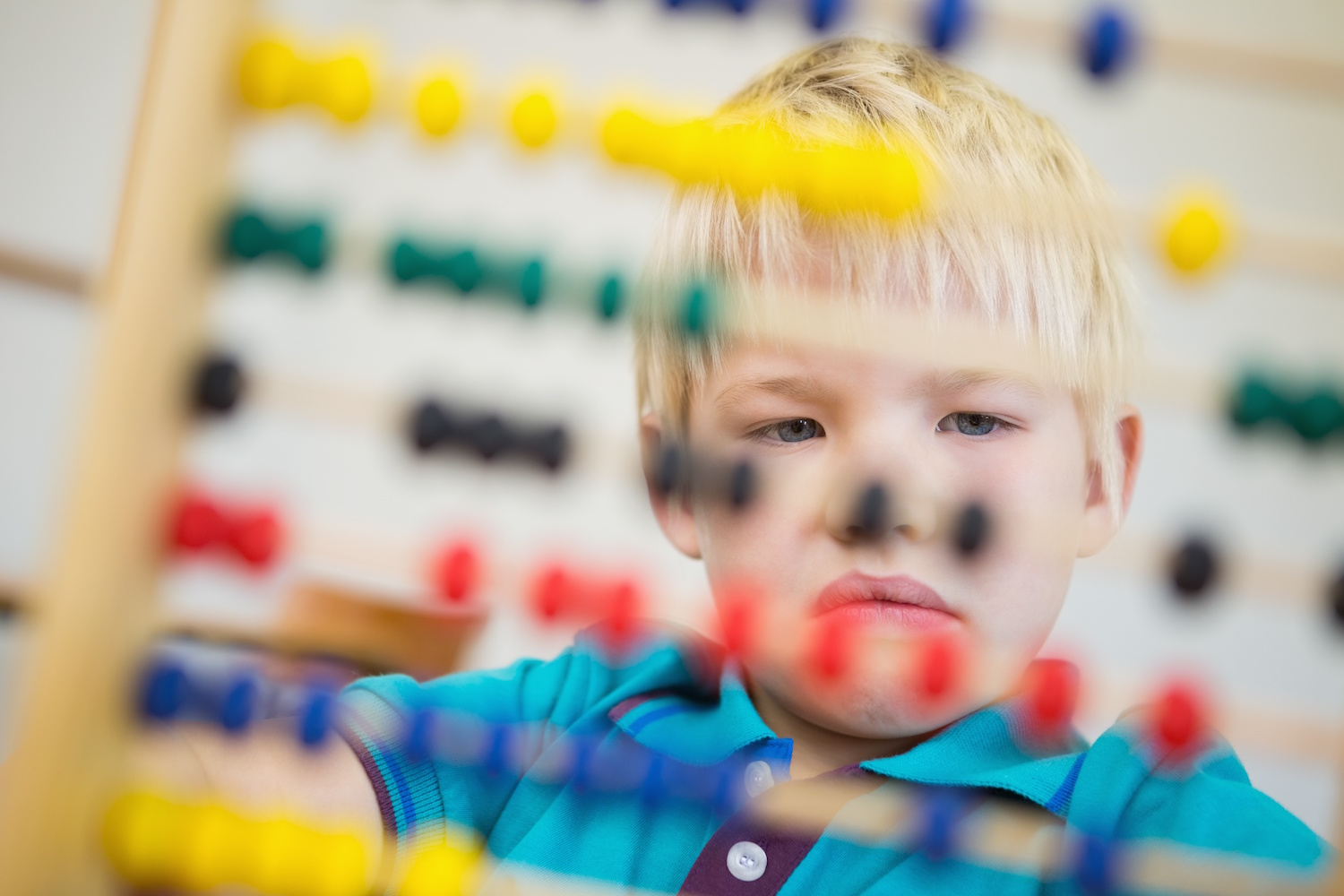Why a Heart Start Is Smarter than a Head Start
/When we push our children into early academic learning, might we be doing it at the expense of their heart’s well-being?
Is expecting our children to leave home at earlier and earlier ages, so they can get a head start with reading, writing, and arithmetic long before they’re developmentally ready, neither strengthening their intellects nor nurturing their hearts, detrimental to their emotional well-being and undermining their chances for success in the things that really matter?
Shouldn't we first consider what's required of a child for intellectual learning to occur before we decide that earlier is better? For starters, a child must be able to sit up straight in a chair for at least 20 minutes at a time, according to Dr. Susan R. Johnson, a pediatrician who advocates children's play instead of early education, and he must be able to do physical things like hold a pencil without thinking about it.
This way his mind is free to concentrate on learning the task at hand. Also his eyes need to move in coordination so he can follow a sentence in a book or see words on a board and then copy them down onto his paper.
Sadly, when you put a child, especially a boy (though plenty of girls suffer too), in a classroom at three and four-years of age and expect him to do things by five years that he's not developmentally ready to do, he can't do them!
Consequently, he begins to think there's something wrong with him. What's wrong is an educational system that expects a child to do something he isn't designed to do yet.
And this begins a long, downward spiral for a child who came into the world with a natural curiosity and love of learning to a child who dreads school and all that's associated with it. It's therefore not surprising that fifty percent of boys who continue struggling to read by the third grade will eventually drop out of high school.
Daniel Goleman, the author of Emotional Intelligence, tells us that emotional well-being trumps a high IQ when it comes to the kind of success in life that makes a man or woman believe they have lived a "good" life.
For most people the "good" life includes such things as love, family, long-lasting friendships, and satisfying work. Yet, we’ve become a nation of highly drugged, discontented individuals with fractured families, markers that indicate our emotional intelligence has become severely compromised.
Emotional intelligence, as defined by psychologists Peter Salovey and John Mayer, include knowing one's emotions, managing emotions, motivating oneself, recognizing emotions in others, and handling relationships.
Yet, in 2017, we find that alcoholism has increased 49 percent in the last 17 years, our divorce rate is fifty percent and one of five Americans suffers from a mental illness every year.
When we think of a person's "emotional intelligence," we can also include the concept of "character." A person's character, according to Aristotle, is determined by the inclinations of his heart towards a variety of vices and virtues, such as pride, envy, and anger or humility, kindness, and patience, respectively. These inclinations become his habits, and his habits become his character.
Keeping this in mind, we might reconsider the way we’re raising our young. Maybe focusing on a child's emotional development instead of "early education" might be the smarter way.
After all, before the 1960’s most children did not attend preschool and many didn't even go to kindergarten; and the extreme sorts of ills we find children suffering from today like obesity, anxiety, depression, and learning disabilities—to mention a few—were uncommon.
Consider that before the early education push in 1965 through President Lyndon Johnson’s “Head Start” programs, only 10 percent of American children were enrolled in preschool, which was considered daycare for poor mothers. Back then, society understood that a child was meant to be at home with his family, who loved him unconditionally.
The father was usually the breadwinner and, sure, while this has all changed today, the question we should be asking is whether or not the needs of our children have changed?
While keeping children at home when they are young may not be attainable for many families—70 percent of women with children under age 18 are now in the workforce—shouldn't we know what the ideal is so we can do our best as a country to better accommodate mothers who have no choice but to work?
Either way, we have to admit that something isn’t working for our children because, according to a 2011/2012 Centers for Disease Control and Prevention report, one in seven children under the age of eight is diagnosed with either a mental, behavioral, or developmental disorder. Before the 1960's these numbers were a fraction of what they are today.
Instead of early academics, children need unstructured and free play, obviously without any technological devices—none is best—and in the outdoors as much as possible. Play is a child's work and has many functions related to child development.
Free play has another purpose, one that's equally if not more important, which is acting as the conduit through which children begin to understand themselves, understand other people, learn to regulate their emotions, and get along in the world. It's largely through free play that children develop the kind of emotional intelligence Goleman writes about.
Children engage in various forms of play, but one particularly interesting type is role-playing. Through role-playing children learn how to see things from another's perspective, and this helps a child develop empathy towards others.
When a girl plays mom, or a boy plays doctor, the children imagine what it's like to be these various characters, an exercise of the imagination that takes them out of their own perspectives and puts them into the mind of an entirely different human being.
Through childhood games children learn different skills like negotiating, organizing, planning, leading, and learning to temper their emotions to get along with others and keep the group intact.
This takes on an even more profound meaning when we ponder that man is a social creature and that loneliness has become a modern plague.
Play for young children is about comradeship, connection, and enjoyment—not winning. When you compare what children learn through natural play to what they learn in school, you find there really is not much to compare. While one activity enriches, the other deprives children of some of what they need most in childhood.
Rather than stay on the early education trajectory, shouldn’t we consider getting back to some old-fashioned childrearing basics when kids were a whole lot happier? When we force children into early education, we obstruct their natural developmental cycle, which contributes to the latest statistic that expects 30 percent of millennial children to be labeled “learning-delayed” or “learning-disabled.” It's not much of a head start, is it?
When leaving home for school is delayed until children are older, not only are they better learners, but they are less likely to have behavioral problems according to educator and researcher Raymond Moore.
He conducted a federal study of 8000 children in the 1970’s and concluded that early education was harmful to children. Moore didn't think children should go to school until they were at least ten years old, and twelve was even better!
Child developmental psychologists, like David Elkind, recommend not putting children into academic programs before the age of six or seven, at the very least.
What is a “head-start” really worth if 30 percent of the children it purports to get ahead actually get behind not only intellectually, but emotionally and physically, too? And what about the children that might not yet be a statistic but aren't doing that great either?
On the contrary, when something causes more harm than good, the intelligent choice is to abandon it. Is there anyone who can reasonably argue that children are not better off at home where they are free to play and develop as Nature intended?
The answer many child development psychologists would argue is no.
A heart start, therefore, is the smarter way.
_______________________________________________________________________
For Elizabeth’s course, Raise Your Child Well to live a life he (she) loves, please join the waiting list to be notified first when enrollment opens again.
Don’t miss our free download, 10 Signs Your Parenting Strategies May Need Tweaking.
Elizabeth Y. Hanson combines her training in holistic medicine, Love and Leadership parenting, plus 17+ years working in education to provide you with a unique approach to raising and educating your children.
A veteran homeschooler herself, she now has two homeschooled children in college.



















